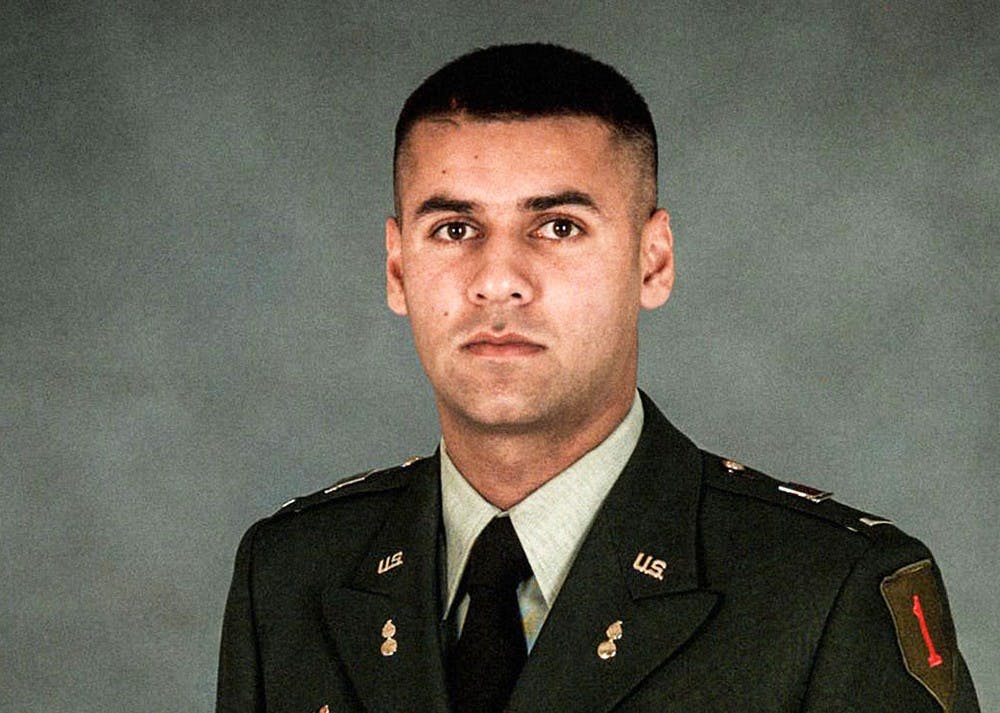The family of Humayun Khan, a College graduate and member of the University’s Army ROTC program, has been at the center of political debate in recent days after appearing on-stage at the Democratic National Convention in Philadelphia in support of Hillary Clinton.
The late army captain’s father, Khizr Khan, addressed Republican presidential nominee Donald Trump’s position on immigration and his statements about Muslims, saying that under a Trump presidency they and their son would not have been allowed into the country.
“Like many immigrants, we came to this country empty-handed,” Khan said at the convention. “We believed in American democracy — that with hard work and the goodness of this country, we could share in and contribute to its blessings.”
On Trump, “you have sacrificed nothing, and no one,” he added.
Humayun Khan, a psychology major, emigrated from the United Arab Emirates with his family as a toddler. He joined the Army after graduating in 2000 to fund his planned career as a military attorney and advocate for American veterans.
He died while serving in Iraq in 2004.
Trump countered Khan’s speech in an ABC interview on Sunday, saying he has made sacrifices for the United States in the form of hard work and success in business.
He also questioned why Ghazala Khan, the soldier’s mother, stood silently next to her husband while he spoke.
“Maybe she wasn't allowed to have anything to say,” Trump said.
In an op-ed published in "The Washington Post," the bereaved mother responded to Trump’s statements, saying, “If he studied the real Islam and Koran, all the ideas he gets from terrorists would change, because terrorism is a different religion.”
Ghazala Khan recalled her son’s kindness and generosity, including the time he spent volunteering to teach disabled children to swim.
“[Humayun] loved America, where we moved when he was two years old,” she wrote. “He had volunteered to help his country, signing up for the ROTC at the University of Virginia. This was before the attack of Sept. 11, 2001. He didn’t have to do this, but he wanted to.”
The Army ROTC program at the University paid tribute to Khan shortly after his death, and the University continues to recognize outstanding ROTC students with the Captain Humayun S. Khan Scholar-Soldier-Statesman Award.
“Every year, at our Joint ROTC Commissioning Ceremony, we read the story of Capt. Khan’s life and sacrifice,” University President Teresa Sullivan said in a public statement. “I was surprised and pleased by [his parents’] appearance [Thursday] night, and I have been gratified by wider recognition of Captain Khan’s life since then.”
Student Council also submitted a resolution to administrators this week requesting that Khan's name be included on a commemorative plaque at the Rotunda.
Student Council Chair Brett Curtis said they are also seeking recognition of other alumni who have given their lives in the military since the Vietnam War.
"There have been ceremonies and these students have been honored, but with the reopening of the Rotunda this fall, we hope this will go further," Curtis said.
Student body representatives have already begun to discuss details of the resolution with University administrators.
"I encourage the student body to assist in this push," Curtis added.
Article updated August 5







